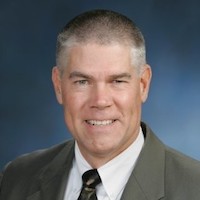Healthcare Associations You Want to Join in 2021 (And Why)
MHA Search
For the latest academic year, we have 170 schools in our MHAOnline.com database and those that advertise with us are labeled “sponsor”. When you click on a sponsoring school or program, or fill out a form to request information from a sponsoring school, we may earn a commission. View our advertising disclosure for more details.
Professional healthcare associations are a crucial resource for new, veteran, and aspiring healthcare administrators. They act as a collective voice to advocate for the profession and also provide members with critical resources such as continuing education, networking opportunities, mentor-mentee programs, and career guides. But not all healthcare associations are created equal.
Some healthcare associations are focused on a particular healthcare specialty, such as long-term care or information technology. Others are more broadly-defined and cross-disciplinary in nature, bringing together several different facets of healthcare.
No matter their focus, the top healthcare associations advance the profession of healthcare administration, prepare their members for career advancement, and act as a central hub for best practices and continuing education.
Below, we’ve taken a look at the top three healthcare associations to join in 2021. Each one offers superb benefits to its members, while also leading the way in a growing and in-demand sector of healthcare. These are forward-thinking organizations that are capable of effecting change at both the individual member level and at the national policy level.
To learn more about them, and how you can get involved, read on.
Between 2016 and 2019, healthcare organizations saw the amount of health data grow by a staggering 878 percent. Such rapid growth is bristling with challenges and possibilities. Effectively capturing, securing, sharing, and leveraging health data is a top priority for many healthcare administrators in 2021 and beyond.

“AHIMA is the leading voice of health information,” says AHIMA CEO Wylecia Wiggs Harris, PhD, CAE. “Our members are leaders at the intersection of healthcare, technology, and business, and they possess a uniquely comprehensive view of a field that is critical to meaningful health innovation. AHIMA works to give our members the tools and resources they need to remain leaders in the field.”
Good healthcare runs on good data, and AHIMA-certified professionals work to ensure that health data and the stories derived from it remain accurate, accessible, protected, and complete. The organization equips its members with the strategies and resources they need to navigate the complexities of healthcare information, break down data silos, connect clinical teams, and build bridges to patient communities. Those skills inform patient engagement efforts, determine the allocation of vital resources, and ensure the vitality of health systems and the communities they serve.
AHIMA also influences health information policy at a high level and acts as a voice for health information professionals in political and advocacy spheres. They’re already active and engaged in advancing their vision for health information professionals in 2021 and beyond.
“In 2021, AHIMA and its members have identified a number of priorities to put before the Biden Administration and the new Congress,” Dr. Harris says. “Patient identification is a driving issue for many of our members, as it impacts patient safety, costs to hospitals and providers, and the response to the pandemic. Covid-19 has also accelerated other issues to the forefront, including telehealth, interoperability, health equity and social determinants of health, and the need to bolster our public health system. AHIMA ensures that the considerations around patient health information remain a driving force in health policy.”
Healthcare administrators who become AHIMA members can help shape the data-driven future of healthcare and health information. They can also push their careers forward: AHIMA credentials denote robust education and an ongoing commitment to staying relevant in the complex and evolving healthcare information space.
Those interested in taking the first steps can view AHIMA’s career tools, and learn more about joining through AHIMA’s membership center.
According to the US Census Bureau, every member of history’s largest generation, the Baby Boomers, will be over age 65 by 2030. Soon after, it is estimated that the nation will have some 77 million senior citizens, a demographic which will, for the first time, outnumber the nation’s youth. Long-term care administrators have a role to play in helping to accommodate this demographic crunch by looking after the interests of the nation’s long-term care residents and families.

“The American College of Health Care Administrators is the only professional membership association for long-term care and post-acute administrators,” says Bill McGinley, CNHA, CAS, CALA, HSE, FACHCA, President and CEO of ACHCA. “Our mission is to serve as the catalyst for excellence in post-acute and aging services leadership.”
ACHCA has a membership of over 2,000 owners, administrators, directors, consultants, students, and leaders who focus on the needs and interests of the individual long-term care and post-acute administrator. Their work involves recruiting a diverse membership to promote the profession, offering professional development programs that advance careers and promote excellence, and bringing together industry leaders to advance the unique healthcare specialty of long-term care. ACHCA members reap the benefits of their own work; they also play an active role in shaping the future of the profession.
For McGinley, ACHCA membership has personal benefits as well as professional ones. He’s been an ACHCA member since 1982, just two months after becoming a licensed nursing home administrator. While he’s changed jobs since then, ACHCA membership has remained a constant and provided an ongoing opportunity to connect with mentors and colleagues along the way. The friends he’s made through the ACHCA have served him well, especially during the more difficult times of his career.
“If you are a professional who wants to be the best in your field, then membership in a professional association is crucial,” McGinley says. “If excellence is our goal, as it should be, we need to surround ourselves with others with the same goal. I believe that as professionals, membership in our professional society is essential and can provide the collegiality, networking, and education that will help us achieve our goals. We need each other.”
Those interested in ACHCA can read more about membership options on ACHCA’s website, and are also invited to connect with McGinley on LinkedIn.
Health services management is one of the fastest-growing professions in the nation. The Bureau of Labor Statistics projects that the need for health services managers will increase 32 percent nationally between 2019 and 2029, a rate that’s nearly nine times the average for all professions. ACHE is at the forefront of that growth, with an 85-year history and over 48,000 healthcare executives committed to integrity, lifelong learning, leadership, and diversity and inclusion in healthcare management.
While there are many professional associations dedicated to specific aspects of healthcare, ACHE offers its members access to cross-disciplinary education and networking. This is an organization where physicians, administrators, and other healthcare stakeholders come together to improve health for their patients and their communities.
Members can also earn the Fellow of the American College of Healthcare Executives (FACHE) credential, the gold-standard in the profession, signaling board-certification in healthcare management.
Members often cite networking opportunities and colleague relationships as the main reasons for joining ACHE, but members enjoy a wide array of tangible benefits, too: a subscription to Healthcare Executive magazine and two different journals, automatic enrollment in their local chapter for nearby education and networking opportunities, access to exclusive career planning tools and Job Center, and discounts on continuing education programs and Health Administration Press books.
ACHE is invested in its mission of educating, engaging, and inspiring leaders to improve health. In practical terms, that means investing its members through best-in-class tools and approaches to foster learning and development, purposefully developing and delivering content to professionals across the continuum of care, and improving accessibility of learning options at both the national and local levels. It also means incorporating diversity and inclusion as both a core value and strategic initiative.
For students and recent graduates who intend to pursue a career in healthcare, ACHE is a professional organization that can provide all the tools and resources one needs to develop and succeed. Student Associate members enjoy many of the same benefits as full members, but at a discounted price; they also get access to tailored career resources, scholarships, and postgraduate fellowships and internships.
New healthcare administrators stand to benefit, too: all ACHE members under 40 years old are automatically enrolled in ACHE’s Early Careerist Network, which offers a ready-made community of peers to learn with and from, as well as extra tools and resources that boost career momentum. They also gain access to ACHE’s Leadership Mentoring Network and Career Advising Network.
Both Student Associates and Early Careerists will find unique and exclusive opportunities at ACHE’s annual Congress on Healthcare Leadership, which in 2021 will be entirely virtual while still offering all the ACHE Face-to-Face Education credits needed to obtain the FACHE credential.
For more insight into the member experience and all that ACHE can bring to a new or aspiring healthcare administrator’s career journey, check out the ACHE blog and podcast, or follow ACHE on LinkedIn, Facebook, and Twitter.

